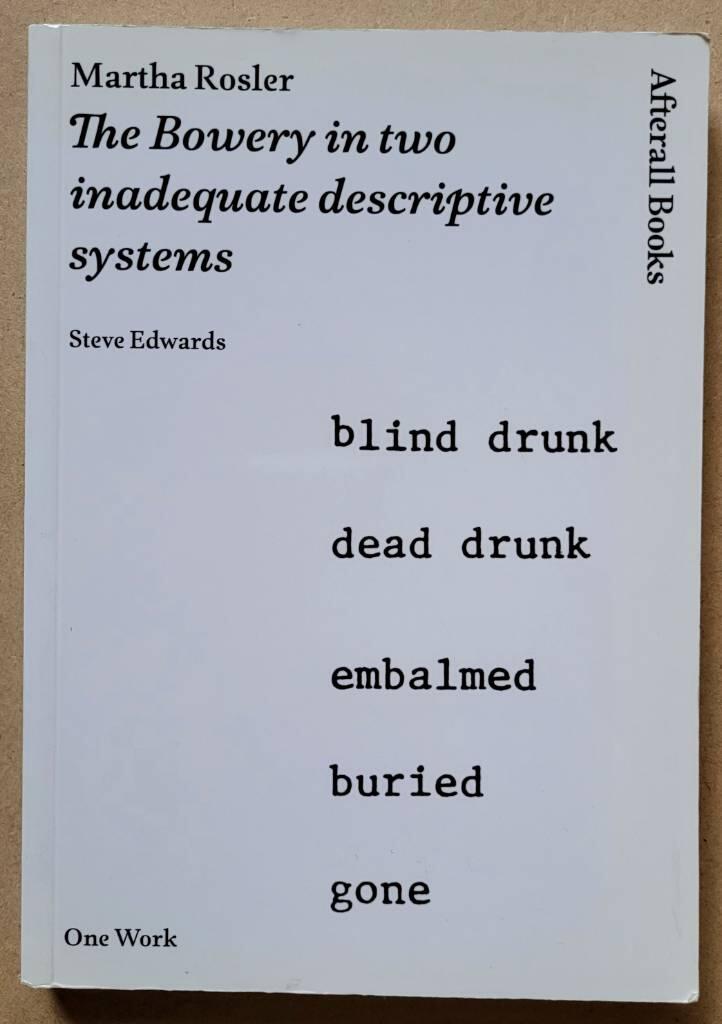
Nihilism, art, and technology
Häftad bok. Axl Books. 1 uppl. 2010. 90 sidor.
Mycket gott skick.
Doctoral thesis in theoretical philosophy at Stockholm University, 2010.
Beginning in an analysis of three paradigmatic instances of the encounter between art and technology in modernism-the invention of photography, the step beyond art in Futurism and Constructivism, and the interpretation of technology in debates on architectural theory in the 1920s and '30s-this book analyzes three philosophical responses to the question of nihilism-those of Walter Benjamin, Ernst Jünger, and Martin Heidegger-all of which are characterized by an avant-garde sensibility that looks to art as a way to counter of the crisis of modernity. These responses are then brought to bear on the work of the architect Mies van der Rohe, whose "silence"-understood as a withdrawal of language, sense, and aesthetic perception-is analyzed as a key problem in the interpretation of the legacy of modernism. From this, a different understanding of nihilism, art, and technology emerges. These concepts form a field of constant modulation, which implies that the foundations of critical theory must be subjected to a historical analysis that acknowledges them as ongoing processes of construction, and that also accounts for the capacity of technologies and artistic practices to intervene in the formation of philosophical concepts.
Förlagsfakta
- ISBN
- 9789174470734
- Titel
- Nihilism, art, and technology
- Författare
- Sven-Olov Wallenstein
- Förlag
- Axl Books
- Utgivningsår
- 2010
- Omfång
- 90 sidor
- Bandtyp
- Häftad
- Mått
- 165 x 241 mm Ryggbredd 7 mm
- Vikt
- 232 g
- Språk
- English
- Baksidestext
- The thesis investigates the role of technology in the formation of the artistic avant-garde, along with various forms of philosophical reflection on this development, with a particular emphasis on Heidegger.
Setting out from an analysis of three paradigmatic cases in the interplay between art and technologythe invention of photography, the shift from Futurism to Constructivism, and the interpretation of technology in debates on architectural theory in the 1920s and 30sit proceeds to a discussion of three philosophical responses to this development, those found in Walter Benjamin, Martin Heidegger, and Ernst Jünger, all of which share a certain avant-garde sensibility and a notion of art as a response to nihilism.
In Heideggers postwar writings we see a retreat from the positions of the mid 1930s, and in his reflections on technology a different answer emerges to the question of whether great art is still possible: great art is an art that exists precisely by making the founding of a world into something problematic.
The fourth part confronts Heideggers analysis of technology with the work of an individual artist, the architect Mies van der Rohe, and asks how the silencethe withdrawal of language, sense, aesthetic perception, etc.that is often understood as a precondition for the critical potential of his work should in fact be understood. By examining interpretations that draw on Heidegger via comparisons with other types of critical theory, a different understanding emerges of the relation among nihilism, art, and technology. They form a field of constant modulation, which implies that the concepts that have been the foundation of critical theory, nature, subjectivity, experience, even being in Heideggers sense, must be subjected to a historical analysis that acknowledges them as ongoing processes of construction, and that also accounts for the capacity of technologies and artistic practices to intervene in the formation of philosophical concepts.














